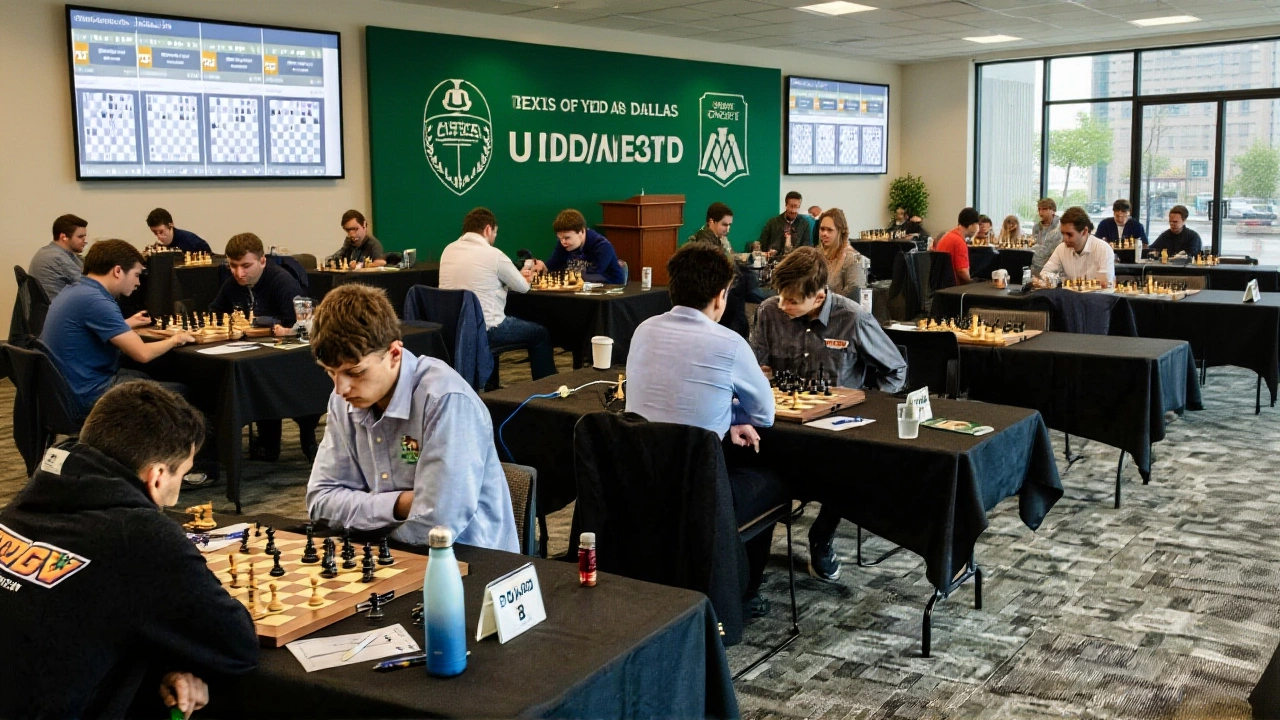Collegiate Chess
When talking about collegiate chess, the organized competition of chess played by university students. Also known as campus chess, it blends academic life with the strategic intensity of the game. Collegiate chess brings together players, coaches, and schools in a network that mirrors other collegiate sports, offering a clear path from casual play to national titles.
One of the core pillars of this scene is the college chess tournament, a multi‑day event where teams from different schools compete for ranking points and titles. Often organized under the umbrella of the US Chess Federation, these tournaments use a team match format, a structure where each school fields a lineup of boards and scores are tallied board‑by‑board. The format encourages teamwork, because a single board win can shift the match outcome, much like a point in football or a lap in racing.
Why Collegiate Chess Matters
The appeal goes beyond bragging rights. A solid FIDE rating, the internationally recognized measure of a player's strength often determines eligibility for chess scholarships, financial aid awarded by universities to attract top talent. Schools with higher‑rated players can negotiate better funding, and students can leverage their rating to secure tuition assistance, housing, or even graduate stipends.
Strategically, collegiate chess forces players to balance personal improvement with team goals. Preparation includes studying opponent line‑ups, analyzing typical opening repertoires used in college play, and honing time‑management skills for rapid‑play rounds that often decide match ties. Coaches act like race engineers, tweaking preparation plans based on each opponent’s style, just as a motorsport team adjusts car setup for different circuits.
Another dimension is the community impact. Campus clubs host regular meet‑ups, offering novices a low‑pressure environment to learn basics while veterans sharpen tactics. This mirrors how auto racing clubs foster tech transfer, except the “technology” here is analytical thinking and problem‑solving. Alumni networks often sponsor tournaments, providing mentorship and career connections for graduating players.
From a broader perspective, collegiate chess influences the national talent pipeline. Many US grandmasters first made their mark in university leagues, similar to how college football feeds the NFL. The competitive structure, backed by official ratings and scholarships, creates a sustainable ecosystem that feeds international events, including the World Team Chess Championship.
Looking ahead, technology is reshaping the scene. Online platforms now host hybrid tournaments, allowing schools to compete without traveling—a practice accelerated during recent global disruptions. Yet the live board experience remains irreplaceable; the tension of a ticking clock and the roar of a cheering crowd still draw the biggest fans.Below you’ll find a hand‑picked set of articles that dig deeper into each of these areas—tournament preparation, rating management, scholarship opportunities, and the day‑to‑day life of a college chess player. Dive in to see how the pieces fit together and how you can make the most of the collegiate chess world.
